Here is a quick update on some key recent C-suite movements in the information technology and information security technology areas in India.
11 December 2020 Update
Jagdip Kumar roped in by Lohia Group as CIO
Jagdip Kumar, General Manager, IT, left Cosmo Films to join Lohia Group as CIO. In this new position, Kumar will lead the digital transformation efforts of the Lohia Group.
Lohia Group is a diversified manufacturing company that produces various products such as flexible packaging, threads, plastic components for automobiles and machines.
Kumar has over 19 years of experience and has earlier worked with AMW, VE Commercial Vehicles, and Welspun.
Puneesh Lamba joins Shahi Exports as Group CIO
Puneesh Lamba, Group CIO of CK Birla Group, has moved to Shahi Exports as their Group Chief Technology Officer (CTO). Lamba will directly report to the Board of Directors of Shahi Exports.
Shahi Export is India’s biggest apparel manufacturer and exporter and has several manufacturing units across nine Indian states and over 100,000 workforce. In the new role at Shahi Exports, Lamba will spearhead its digital transformation and cloud-based tech-innovation initiatives.
Lamba is a seasoned IT professional with a strong experience of over 27 years. He has previously associated with firms such as BILT, Punj Loyd, GE Capital in leadership roles.
Kapil Madan is Spark Minda Group’s new CISO
Spark Minda Group has appointed Kapil Madaan as its new Chief Information Security Officer (CISO). The company has a strong presence in the global automotive sector, catering to a passenger vehicle, commercial vehicle, two-wheelers, and off-road vehicle manufacturing.
Madan has previously worked with Max Healthcare as a cybersecurity leader.
Rohit Kilam moves to CMS Info Systems as CTO
Rohit Kilam has joined CMS Info Systems Ltd as Chief Technology Officer (CTO). CMS Info Systems is India’s top Cash Management and Payment Solutions company. In his new role, Rohit will lead to several process transformations and tech-innovations at CMS Info-Systems.
Rohit has earlier worked in a gamut of challenging assignments in Digital Transformations, IT Strategy, IT Performance Management, Building Digital products, Operating Models, M&A IT Integration, Outsourcing Governance, Tech Product development, and ERP implementations.
He has earlier worked with companies such as Adani Enterprises, Masan Group, and IBM in leadership roles
20 September 2020 Update
Shuvankar Pramanick, CIO, Columbia Asia Hospitals
Shuvankar Pramanick has been appointed as the new CIO of Columbia Asia Hospitals Pvt. Ltd, a group of multi-specialty hospitals that operates in cities like Bangalore, Ghaziabad, Gurgaon, Mysore, Kolkata, Patiala, and Pune.
Bringing 20+ years of experience, Pramanick will focus on building new tech innovations in the healthcare sector while leading the IT team of the group. Pramanick has previously held senior IT leadership positions Paras Healthcare, Fortis Healthcare, and Asian Institute of Medical Sciences.
Marc Concannon, CTO, Cubic Telecom
Marc Concannon has joined as CTO of Software IoT (Internet of Things) and connectivity management company, Cubic Telecom. In this new role, he will focus on Cubic’s software product roadmap and growth strategy. With over 20 years of experience, Concannon has previously served as the CTO at ClavisInsight, LogEntries, and Edge by Ascential.
Kamal Hathi, CTO, DocuSign
DocuSign has roped in former Microsoft veteran Kamal Hathi as their new CTO. With over 25 years of experience leading technology and product teams at startups and global multinationals alike, Hathi will oversee the development and execution of DocuSign’s technology roadmap, and support product expansion.
San Francisco based DocuSign help organizations manage and automate electronic agreements.
24 July 2020 Update
Munish Mittal, Group Head–IT & CIO leaves HDFC Bank
Munish Mittal, Group Head-Information Technology & Chief Information Officer at HDFC Bank has exited HDFC Bank. He had joined the private lender in 1996 as IT Manager. During his 24 years tenure at HDFC, he spearheaded various roles, including managing the IT strategy of the bank and its associated companies, HDFC Securities, and HDB Financial Services. Mittal has not disclosed his future plans yet.
A Shiju Rawther roped in by Poonawalla Finance for CIO role
A Shiju Rawther has been appointed as the CIO of Poonawalla Finance. In his new role, Rawther will lead IT functions and strategies, and be responsible for designing the digital roadmap of the organization. He will also spearhead the company’s analytics function. Rawther has moved from IIFL Finance where he was the Executive Vice President–Technology. He has over two decades of experience in driving digital transformation, innovation, and analytics in various multinationals.
Dr. Jai Menon joins the Advisory board of IndiQus Technologies
Dr. Jai Menon, the former Group CTO of HT Media, has joined the advisory board of IndiQus Technologies, a leading telecom cloud monetization platform provider. Dr. Menon is a global technology leader with over three decades of global experience across the US, Europe, Asia, Africa, and Australia. He is largely known for his various technology leadership roles at Bharti Airtel. In his new role at IndiQus, Dr. Menon will play an active strategic role in IndiQus’s product evolution and the company’s expansion plans.
Gaurav Kataria joins Sai Life Science as Chief Digital and Information Officer (CDIO)
Gaurav Kataria has joined Sai Life Sciences as Chief Digital and Information Officer (CDIO). He was previously working as Vice President of Digital Strategy and Solutions (Aerospace & Defense) at Cyient. In his new role, Kataria will be driving the digital and IT strategy for Sai Life Sciences, a full-service Contract Development and Manufacturing Organization (CDMO). Sai Life Science works with innovator pharma and biotech companies globally to accelerate the discovery, development, and manufacture of complex small molecules.
Amit Waghmare takes up CIO role at DB Corp
Amit Waghmare has joined DB Corp as the Chief Information Officer (CIO). Amit has moved on from Page Industries where he was heading IT for more than two years. DB Corp, formerly known as Dainik Bhaskar, is a leading media organization headquartered in Bhopal. Waghmare has over 17 years of work experience in the IT sector with a demonstrated history of working in the Media, Power, Textile, Pharma, Real Estate, Luggage, Apparel, and fashion industry.
09 June 2020 Update
Unique Kumar joins CK Birla Group as Group CISO
Unique Kumar has been appointed as Group CISO of CK Birla Group, a diversified $2.4 billion conglomerate with over 25,000 employees and 41 manufacturing facilities.
Kumar joins the CK Birla group from Max Healthcare, where he was heading Digital Innovation and Cybersecurity. He has also held leadership positions with Aviva Life Insurance, Aptara, and Idea Cellular.
Manish Shetty moves to Diageo India as CIO
Manish Shetty is Diageo India’s new CIO. Shetty was earlier working as Director–IT at Tata Consumer Products. Prior to that, he was CIO at Sanofi and before that Director–IT at Tata Global Beverages. Shetty has also held leadership and managerial positions at companies like Birlasoft, Radian, KPMG US, American Express, and Larsen & Toubro Information Technology.
Diageo plc is a British multinational alcoholic beverages company, with its headquarters in London, England and offices in six continents.
Sun Life names Laura Money as new global EVP and CIO
Sun Life Financial Inc has announced the appointment of Laura Money as Executive Vice-President and Chief Information Officer effective 29 June 2020. Laura will report to Kevin Strain, Chief Financial Officer and Executive Vice-President, Sun Life. She succeeds Mark Saunders, EVP, and Chief Information Officer, who announced his plans to retire at the end of April next year.
Sun Life is a leading international financial services organization providing insurance, wealth, and asset management solutions to individual and corporate clients. Sun Life has operations in a number of markets worldwide, including Canada, the United States, the United Kingdom, Ireland, Hong Kong, the Philippines, Japan, Indonesia, India, China, Australia, Singapore, Vietnam, Malaysia, and Bermuda.
31 May 2020 Update
Jayanta Bhowmik joins Kesoram Industries as group CIO
Kesoram Industries is a part of the BK Birla Group Of Companies. The company is engaged in the manufacturing of cement, tyres, tubes, rayon, paper, heavy chemicals, and spun pipes. Bhowmik has moved from Usha Martin, where he served as a Senior Vice President of IT and Group CIO. In his earlier stints, he had held senior leadership positions at Appejay Surrendra Group, Tega Industries, HCL Technologies, and ABP.
Ranjit Satyanath, Head of Technology Operations at Croma, quits
Satyanath had joined Chroma in August 2014, and successfully led the IT strategy and digital initiatives at Croma, one of India’s largest consumer electronics and appliances retailer.
Manish Mimani quits Aviva Life Insurance to become an entrepreneur
Manish Mimani, CIO for Aviva Life Insurance, has moved on to pursue an entrepreneurship path. Mimani has launched a new cybersecurity firm, Protectt.ai Labs, with an aim to build next-generation mobile security and real-time fraud management solutions.
14 May 2020 Update
Anis Pankhania joins Capgemini as Senior Director – Security Operations and Compliance.
Pankhania is based in Pune and joins Capgemini from Vodafone Idea, where he was heading Security Compliance and Data Privacy. In his new role, Pankhania will lead a team of specialized IT security and risk professionals. Pankhania has earlier worked in senior IT security roles in companies such as Aircel, IBM, and Airtel.
Mihir Joshi joins HDFC Pension Management and HDFC International Life and Re as CISO
In his new role, Joshi will be managing the operations and administration of various IT security devices, solutions, technologies, and processes deployed to enhance the security posture for HDFC Life, HDFC Pension, and HDFC LifeRe. Immediately prior to this, he was with Ares Management Corporation where he set up the Cybersecurity practice from scratch.
BNP Paribas appoints Mannan Godil as Director & India Head, Information Security & Business Continuity Management
Mannan Godil has joined BNP Paribas as Director & India Head, Information Security & Business Continuity Management. He has been roped in from Edelweiss Financial Services where he was working as Senior Vice President, Head – Information Security / CISO. Previously, he had also served in companies, such as eClerx Services, Zener Electronics, Stream Tracmail, and S.S. Nirban Enterprises.
Rajesh Hemrajani is the new CISO at Paytm Payments Bank
Rajesh Hemrajani has been appointed as CISO at Paytm Payments Bank. Prior to this, he was CISO at IDFC First Bank. Previously, he has held several leadership and roles at companies like RBS, Nomura Securities, Emirates Airlines, and Dubal.
Manish Bhatia joins Lendingkart as President – Technology, Analytics & Capabilities
Manish Bhatia has been roped in by Lendingkart as President – Technology, Analytics & Capabilities. In his previous role, he was the CTO at Amazon Pay India. He was also the Co-founder and CTO at Buymaxo, and previously served in organizations like Education Finance Partners, FedEx Office, and JP Morgan Chase.
If you think we’ve missed out featuring any other key recent C-suite movements/appointments in the above list, please feel free to drop a line to us at betterworld@bmnxt.com




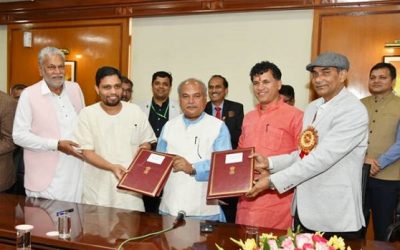

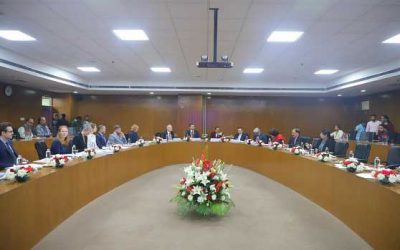

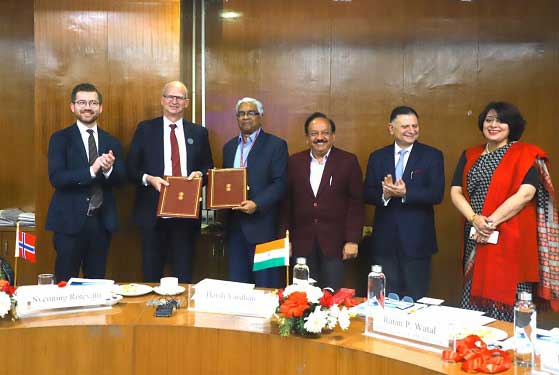
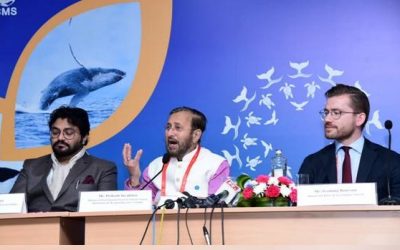
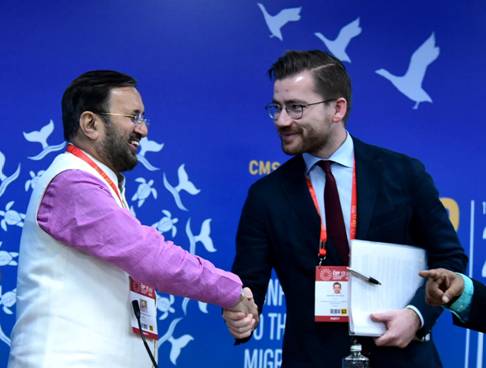
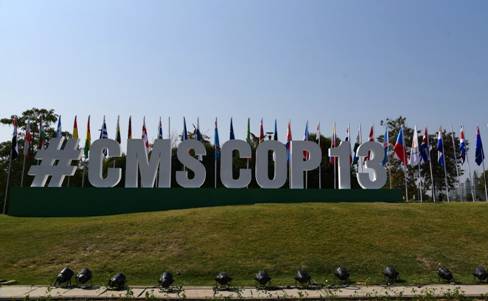
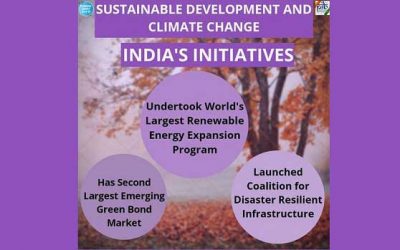
0 Comments